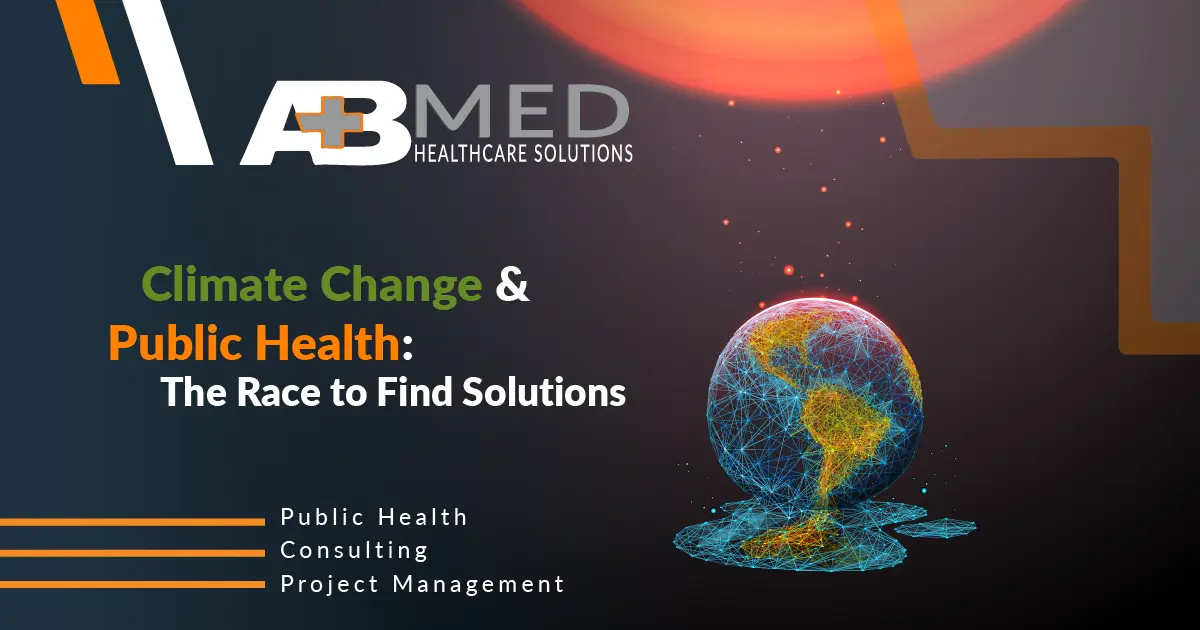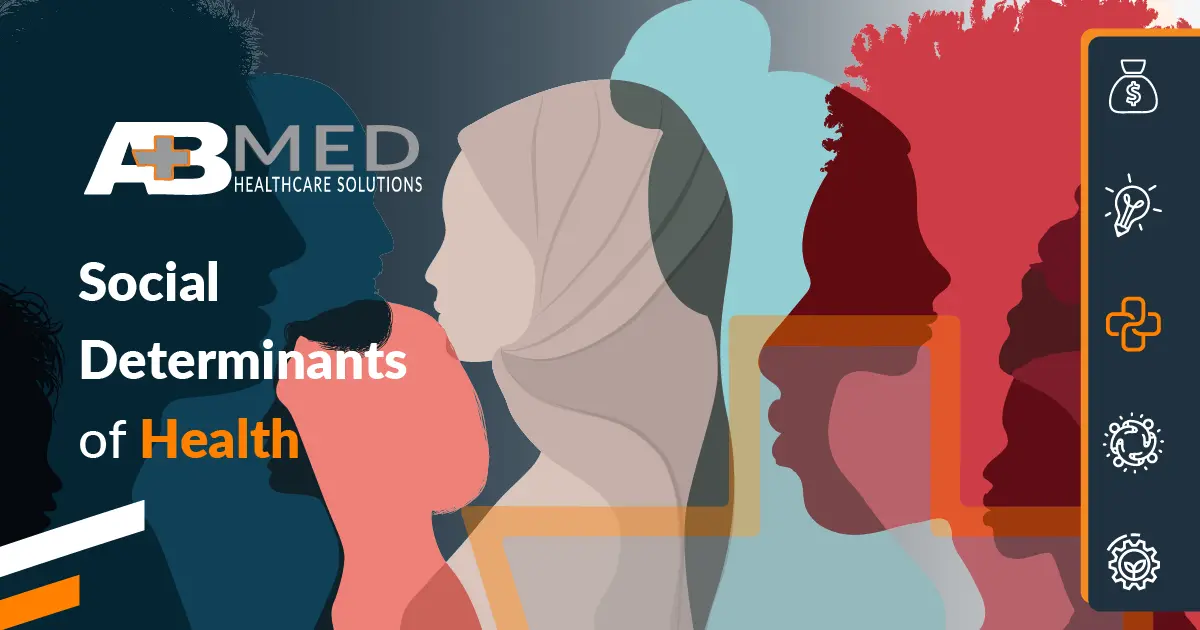Climate change is a growing concern that’s reshaping our world and influencing various aspects of human life. One of its most alarming impacts is on public health. The intersection of climate change and public health is becoming a primary focus for healthcare professionals, governments, and public health organizations worldwide. The race is on to find solutions to mitigate these impacts and safeguard our health in the face of a changing climate. (i) (ii)
How Climate Change Affects Public Health
Climate change affects public health in two main ways: by changing the seriousness or frequency of health problems that people already face and by creating new or unanticipated health problems in people or places where they have not been before. (i)
Health Risks from Extreme Weather Events
Extreme weather events are becoming more frequent and severe due to climate change. These events, such as heat waves, floods, and storms, can lead to injuries and premature deaths. For example, heat waves can cause heat exhaustion and heatstroke, particularly among vulnerable populations like extremes of age and those with pre-existing health conditions.
Spread of Diseases
Climate change also alters the spread of certain pests and diseases. As temperatures rise, disease-carrying vectors like mosquitoes and ticks can expand their range, increasing diseases like Lyme disease and West Nile Virus. Changes in rainfall patterns can also impact freshwater availability and quality, leading to water-borne illnesses. (i)
Respiratory and Cardiovascular Disease
The quality of the air we breathe is directly affected by climate change. Increased levels of air pollution and airborne allergens due to warmer temperatures can lead to respiratory problems such as asthma and other lung diseases. Climate change has also been linked to increases in heart diseases. (i) (ii)

Vulnerability and Disparities in Climate Change Impacts
It’s important to note that not everyone is equally at risk. A person’s vulnerability to climate change impacts depends on three key factors:
- Exposure: The degree to which people are exposed to climate hazards can vary based on their location and lifestyle. For example, individuals who spend a lot of time outdoors or live in areas prone to extreme weather events may be more exposed.
- Sensitivity: Certain people are more sensitive than others to climate hazards due to factors like age, health conditions, and genetic factors. For example, children and adults with asthma are particularly sensitive to air pollutants and wildfire smoke.
Social Determinants of Health, Climate Change and Public Health
These factors are closely intertwined with social determinants of health, the conditions in which people are born, grow, live, work, and age. These conditions can influence a wide range of health risks and outcomes and often lead to health disparities. For example, low-income communities may be more exposed to climate hazards due to inadequate housing or living in areas with high environmental risks. They also often have lower adaptive capacity due to factors such as limited access to healthcare, lack of resources to relocate or modify their homes, and higher rates of chronic health conditions that can exacerbate the health impacts of climate change.
The Role of Public Health in Addressing Climate Change
Public health organizations play a vital role in addressing the health impacts of climate change. They are at the forefront of monitoring and controlling the spread of diseases, managing health risks from extreme weather events, and advocating for policies and practices that promote health and mitigate climate change impacts.
Public health strategies to combat climate change typically include:
- Monitoring and surveillance of health effects
- Research to better understand health impacts and effective interventions
- Health education and promotion
- Advocacy for policies that reduce greenhouse gas emissions and promote health
- Preparedness and response planning for extreme weather events and other climate-related emergencies
Furthermore, public health leaders are tasked with addressing disparities to mitigate climate change’s impacts. Strategies can include targeted interventions in high-risk communities, policies to reduce socio-economic inequalities, and initiatives to improve access to healthcare and other resources that enhance adaptive capacity.
The One Health Approach by AB Med
At AB Med, we’re committed to addressing the complex health challenges posed by climate change. Our One Health service line focuses on the interconnectedness of human, animal, and environmental health. Our multidisciplinary team of experts is dedicated to fostering collaboration and communication across sectors, providing a wide range of specialized services.
In this pursuit of holistic health, One Health by AB Med leverages cutting-edge research, innovation, and comprehensive epidemiology to guide our strategies and interventions. Our approach is not only multidisciplinary but also deeply collaborative, involving the close cooperation of specialists in various health fields, researchers, and policymakers. (iii)
Our team of dedicated professionals includes physicians, nurses, infection control specialists, clinicians, data scientists, epidemiologists, logisticians, veterinarians, and environmental scientists, among others. We excel in providing flexible solutions for healthcare initiatives, whether it involves designing new initiatives or evaluating and managing existing programs. We also leverage advanced technologies such as data analytics, AI, and modeling software to offer adaptable technology solutions.
We firmly believe that we can devise more effective, sustainable solutions by examining health issues from multiple perspectives. With One Health by AB Med, you’re partnering with a team committed to pioneering health advancements for the betterment of all life and the world we share.
Charting a Path Forward
The impact of climate change on public health is a pressing issue that requires immediate attention and action. While the challenges are significant, there is a growing understanding of the risks and a mounting effort to find effective solutions. Through multidisciplinary collaboration, comprehensive research, and innovative approaches, we can make strides in addressing the health impacts of climate change and build a healthier, more sustainable future. Let’s Connect.
REFERENCES & RESOURCES
- EPA. Climate Change and Human Health | US EPA. Available at: https://www.epa.gov/climateimpacts/climate-change-and-human-health#:~:text=The%20health%20effects%20of%20climate,and%20overall%20poor%20mental%20health (Accessed: 21 June 2023).
- CDC. Climate Effects on Health | CDC. Available at: https://www.cdc.gov/climateandhealth/effects/default.htm (Accessed: 21 June 2023).
- AB Med. Home – AB Med. Available at: https://myabmed.com/ (Accessed: 21 June 2023).






